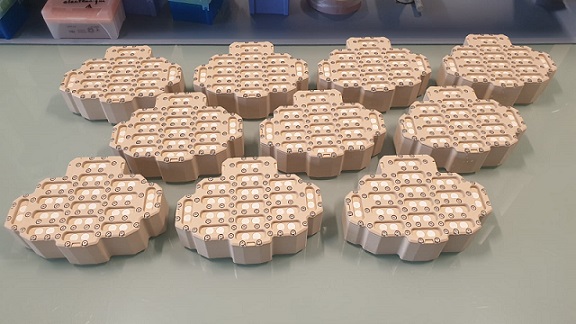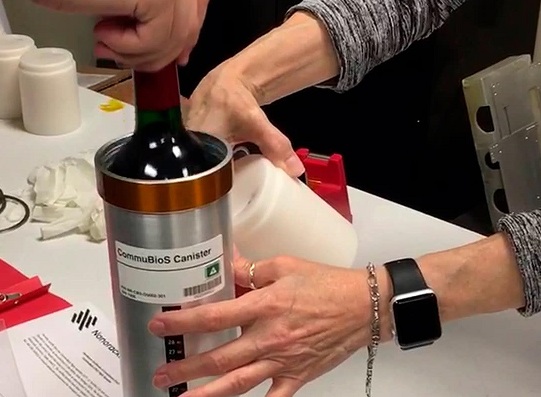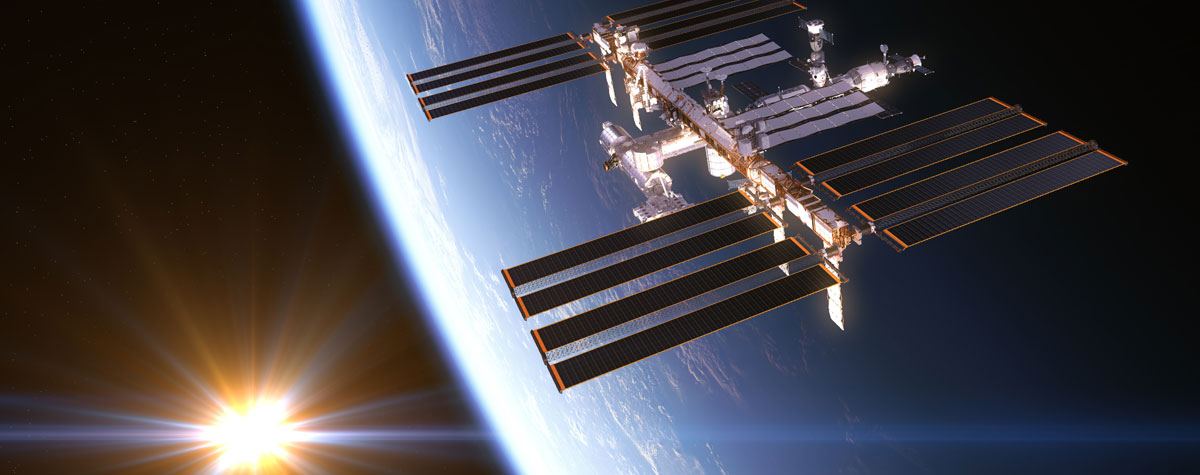Not for the three-man crew. For the future of agriculture on Earth.
Among more than 2,000kg of cargo delivered to the International Space Station earlier this month were a new science facility scheduled to be installed to the outside of the station during a spacewalk this spring – and 320 baby vines. 160 Merlot and 160 Cabernet Sauvignon.
The 40mm canes will remain in space for six months, as part of a research project called CANES. The aim is to give insights into the future of agriculture by taking advantage of the accelerated development of plants in a stressful, strange environment with little or no gravity, and higher radiation exposure.
Mobilising their defences when threatened by changes in their environment, plants undergo severe biological changes.

'Extreme environmental stress can cause extinction but may also lead to rapid evolutionary changes'The experiment’s scientific director, Dr Michael Lebert, explains: “Organisms adapt to changing environments using their amazing flexibility to remodel themselves by a process called evolution. The interactions between organisms and the environment are the basis of evolution because these determine the general developmental tendencies. Changing environments can cause strong selective pressure, leading to genetic and phenotypic shifts for adaptations. Stress plays a significant role in facilitating adaptation by allowing better modifications, maintenance, and functioning of organismal systems to everchanging environments. Extreme environmental stress can cause extinction but may also lead to rapid evolutionary changes and the origin of new species adapting to new environments.”
ISVV (Institut des Sciences de la Vigne et du Vin, Bordeaux) will analyse the differences between returning canes with similar specimens that stayed on earth.
Both sets of pruning canes, with dormant buds, are being stored at similar humidity levels (70-80%) and low temperature (0.5-8°C) in the dark.
The company behind the experiment, Space Cargo Unlimited (SCU), is focusing on vines and wines as a proxy for agricultural evolution at large because of the extended knowledge developed around wine since antiquity and the role it played in previous scientific breakthroughs, such as Louis Pasteur discovering the existence of bacteria.
Another reason for choosing wine as a proxy is because wine regions are severely affected by global warming. In a statement, SCU says: “Without action, in 40 years, Bordeaux wines as we know them will disappear.”
Nicolas Gaume, CEO and co-founder of Space Cargo Unlimited, hopes the CANES experiment will also help agriculture to adapt to climate change.
He says: “Resources are depleting and the Earth may not be able to sustain itself by 2050. Space Cargo Unlimited believes there is no Planet B, and that applied research options leveraging space can unlock the future of agriculture and food for humanity.”
Dr Lebert adds: “This could be a game-changer in unlocking the agriculture of tomorrow.”

CANES is the third of six wine-related experiments in the ‘Mission WISE’ (Vitis Vinum in Spatium Experimentia) programme, a partnership between SCU, the CNES (Centre National d’Etudes Scientifiques, Toulouse), ISVV, and ESA (European Space Agency).
In the first, SCU sent 12 bottles of red Bordeaux – packed in protective metal containers (above) – to the International Space Station in November 2019. The wine, from an unnamed château (to prevent accusations that the experiment is a marketing ploy), will be aged in space for 12 months before returning to Earth and being compared with 12 bottles from the same batch that were stored in France at the same temperature (18°C).
Researchers expect the space-based radiation and microgravity to influence the chemical reactions in the bottles and the taste of the wine, and will be looking, in particular, to see how it affects health-relevant components like polyphenols.
The second experiment, in December 2019, involved giving vine calluses several minutes of weightlessness in suborbital space to test the research methodology.
Two further experiments, including one related to ferments, will take place in 2021 and the sixth experiment is scheduled for 2022.











.png)









